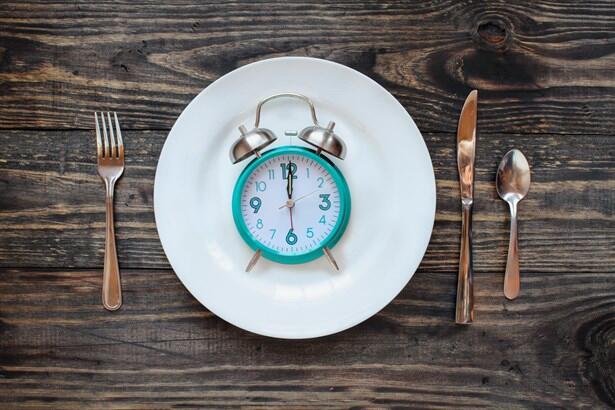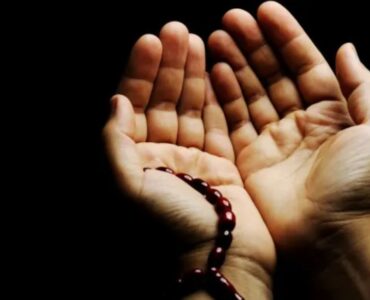بِسْمِ اللَّهِ ٱلرَّحْمـٰنِ ٱلرَّحِيمِ
شَهْرُ رَمَضَانَ ٱلَّذِيۤ أُنْزِلَ فِيهِ ٱلْقُرْآنُ هُدًى لِّلنَّاسِ وَبَيِّنَاتٍ مِّنَ ٱلْهُدَىٰ وَٱلْفُرْقَانِ فَمَن شَهِدَ مِنكُمُ الشَّهْرَ فَلْيَصُمْهُ وَمَن كَانَ مَرِيضاً أَوْ عَلَىٰ سَفَرٍ فَعِدَّةٌ مِّنْ أَيَّامٍ أُخَرَ يُرِيدُ ٱللَّهُ بِكُمُ ٱلْيُسْرَ وَلاَ يُرِيدُ بِكُمُ ٱلْعُسْرَ وَلِتُكْمِلُواْ ٱلْعِدَّةَ وَلِتُكَبِّرُواْ ٱللَّهَ عَلَىٰ مَا هَدَاكُمْ وَلَعَلَّكُمْ تَشْكُرُونَ
“It is the month of Ramadan in which The Quran was sent down, guidance for mankind with clear teachings showing the Right Way and a criterion of truth and falsehood. Therefore, anyone of you who witness that month should spend it by fasting, and whoever is ill or on a journey shall fast the same number of days later on. Allah desires ease for you and He does not desire for you difficulty. He wants you to complete the prescribed period so that (the day fasting is finished) you glorify His Greatness (through Salat ul Eid) and fulfill your duties towards Him for giving you guidance.” (Al-Baqara 2/185)
“ الصِّيَامُ جُنَّةٌ، فَلاَ يَرْفُثْ وَلاَ يَجْهَلْ، وَإِنِ امْرُؤٌ قَاتَلَهُ أَوْ شَاتَمَهُ فَلْيَقُلْ إِنِّي صَائِمٌ.
“Fasting is a shield; so when one of you is fasting he should neither indulge in obscene language, nor should he raise his voice in anger. If someone attacks him or insults him, let him say: “I am fasting!” (Sahih al-Bukhari, Book of Fasting, 28)
Dear youth,
The days and the months are a gift to us from Allah. All the days and the months are valuable to us; but the month of Ramadan in which the Quran started to be sent down and the Laylat al-Qadr which is in this month is especially emphasized by Allah. Now we are in the atmosphere of this month. We have started fasting. For this reason I would like to talk about the month of Ramadan and fasting.
Dear youth,
The month of Ramadan takes its privilege from the Quran. The Quran shows the straight path to all mankind and gives us wisdom in distinguishing between the truth and the falsehood or real and unreal. When you travel to a foreign country, you may use a travel guide to find out about your destination or get advice on where to go and what to do. Nowadays we use instruments such as navigators, digital maps or travel blogs. However, in the olden days, all this information was collected in a tourism guide. We used to keep this guide at hand and use it throughout our journey. Similarly the Quran is our guide which shows us the straight path throughout our lives and we should always keep it at hand. From this perspective the Quran is the first and the most important source of knowledge to refer to for Muslims.
Dear youth,
Allah ordered us to fast all through the month of Ramadan. Fasting has benefits both physical and spiritual. Rasullullah (S.A.W.) said that “fasting will give you good health.” Today all the health authorities around the world accept that fasting benefits your health. However, this is not the only intention of fasting. As we mentioned at the beginning of our sermon Rasulullah (S.A.W.) emphasized the ultimate purpose of fasting by saying “fasting is a shield” and continued by saying “so when one of you is fasting he should neither indulge in obscene language, nor should he raise his voice in anger. If someone attacks him or insults him, let him say: “I am fasting!” This means, fasting is not a physical devotion only. Fasting should be protecting us from uttering bad words and doing bad behaviors. Only this way fasting could be a shield for us. We all know that a Mu’min (believer) should always keep away from lies and dishonesty. In another hadith it is emphasized that whoever does not keep away from these bad habits, his fasting would not be valuable by the criteria of Allah: “Whoever does not give up forged speech and evil actions, Allah is not in need of his leaving his food and drink (i.e. Allah will not accept his fasting.)” From this hadith we may conclude that fasting is not just a devotion to stop eating and drinking but while cleansing our body from the toxins it also purifies our spiritual soul.
Dear youth,
As it is stated in Al-Baqarah 2/183, fasting was prescribed for those people before us too. Even today some of the Jews and Christians fast, but with a few differences compared to our rules.
Muslims fast according to what is stated in the Surah Al-Baqarah 2/187: “Eat and drink until the white streak (of light) in the direction of dawn is clearly distinguishable for you from the black streak (in that direction).” The time it is mentioned in the verse is called Al Fajr-ul-Sadiq which means the true dawn. The phrase “until the white streak in the direction of dawn is clearly distinguishable for you from the black streak” shows that this time is visible to everybody. Whoever has an opportunity may go out to observe the blackness of the Earth surface and above that, red and white lines in the horizon. So you should start your fasting at this time in which it is described in the Quran and finish it at the sunset.
Dear youth,
The last ten days of Ramadan are exclusive in a way that any of these days could be the Laylat Al-Qadr that is mentioned in the Quran. In our country the Laylat Al-Qadr is celebrated in the 27th night of Ramadan although this could not be the exact time. So it is advised that we should consider the last ten nights with the same importance and care. The Laylat Al-Qadr is mentioned in the Quran as follows:
“Surely We revealed it on the Laylat Al-Qadr. And what will make you comprehend what the Laylat Al-Qadr is? The Laylat Al-Qadr is better than a thousand months. In it, the angels descent with the Ruh (the orders taken) by the permission of their Master for every affair. Peace! It is till the break of the dawn.” (Al-Qadr 97/1-5)
In the Quran any exclusive type of prayer is not specified for the Laylat Al-Qadr. Usual optional (nawafil) prayers could be performed or the Quran and its meanings could be read at night. It is narrated by Aisha Bint Abu Bakr (R.A.) regarding the Laylat Al-Qadr that Rasullullah (S.A.W.) said as follows:
“I asked, ‘Oh Rasullullah, how should I pray during the night of Laylat Al-Qadr?’
Rasullullah (S.A.W.) replied, “Say, Oh Allah, You are the forgiver, You love to forgive, forgive me too”
We should also pray a lot like this, both during the night of Laylat Al-Qadr and the other times. Our fasting should fulfill the criteria about fasting which we mentioned above. By doing so, we hope that we shall be saved








Add comment